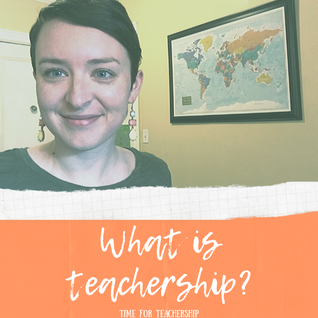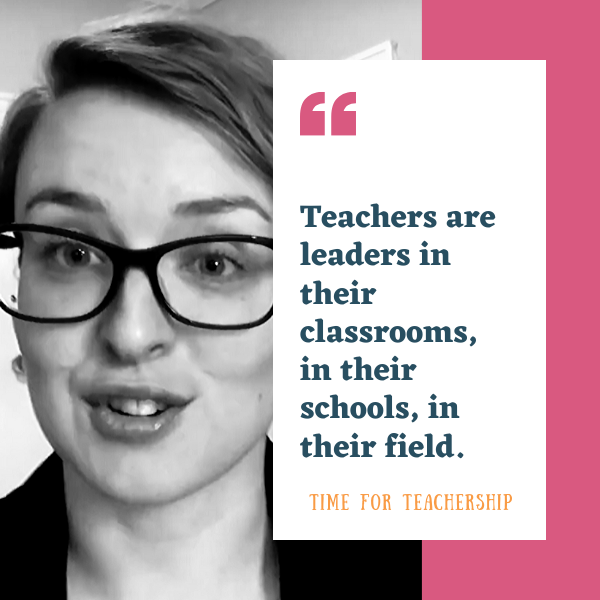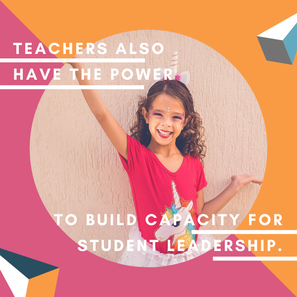|
Hi, I'm Lindsay! I never wanted to be a teacher. In college, after changing my major 3 times, I took Gender and Women's Studies courses alongside Sociology courses. I wanted to contribute to social change. Then, I realized teaching was a great way to introduce students to new ideas, promote the value of inclusivity, and the skill of critical thinking. I became certified as a Special Education teacher through NYC Teaching Fellow's program at Hunter College. I taught for 7 years in New York. I worked at 3 different schools across 2 boroughs. At each, I was able to teach a feminist elective I designed. I started sharing my curriculum with other educators on my blog, Gender Studies for All. The last school I taught at was part of the Internationals Network for Public Schools, a network of schools that served students who had immigrated to the U.S. in the last 4 years. I had students from 50 different countries taking my feminism course. Together, we were able to explore each of our attitudes about gender, race, and identity. This was what I signed up for. For the last three years of my teaching career, I was working on a PhD in Leadership and Change. Antioch University's low-residency program is amazing - I was still able to teach full-time and not be completely overwhelmed by student debt. The school I was working at supported teachers to become leaders of school initiatives and make school-wide decisions as part of the leadership team. We also collaborated with other schools in the network to provide teachers with opportunities to attend various forms of teacher-led professional development. As a learned about the concepts of shared leadership in the classroom, I experienced real-life examples of it at work. This was when I realized the connection between teaching and leading. Teachership is "the quality that emerges when exceptional teaching is interwoven with exceptional leading," (Steinbacher-Reed and Rotella, Jr., 2015). Teachers are leaders in their classrooms, in their schools, in their field. Organizations that embrace shared leadership structures see better results as a result of inclusive decision-making (Kusy & McBain, 2000) and because people who feel supported are more likely to work towards collective goals (Carson, Tesluk, and Marrone, 2007). In addition to being leaders themselves, teachers also have the power to build capacity for student leadership. When students are valued as leaders in their schools and given opportunities to take on leadership roles, we have seen improvements in student agency, relationships with peers and adults, academic performance, and civic efficacy (Mitra, 2018). This is certainly not a new idea. A revolutionary thinker, Mary Parker Follet, first introduced the concept of "power with" (instead of "power over") in 1924! Today, I'm living in Boston and working as an instructional coach and educational leadership consultant. I currently work with teachers, coaches, and school leaders around the U.S. to make teachership a reality for as many schools as possible. To reach that goal, I work with teachers to streamline their planning and grading process to free up more time. I help school leaders put structures in place to foster teacher and student voice in school governance. When schools see the value of this work, often, they are able to prioritize issues that previously may have felt too big to tackle. So, I am thrilled to support schools in the critical work of advancing racial and gender equity and promoting culturally responsive practice so that all students have educational experiences that spark a lifelong love of learning and prepare them to be socially responsible leaders in their communities. I'm excited to launch this Time for Teachership blog to share ideas for how to grow as a teacher and leader. Don't want to miss any tips? Sign up for a weekly letter from lindsay by clicking the button below.
1 Comment
|
Details
For transcripts of episodes (and the option to search for terms in transcripts), click here!
Time for Teachership is now a proud member of the...AuthorLindsay Lyons (she/her) is an educational justice coach who works with teachers and school leaders to inspire educational innovation for racial and gender justice, design curricula grounded in student voice, and build capacity for shared leadership. Lindsay taught in NYC public schools, holds a PhD in Leadership and Change, and is the founder of the educational blog and podcast, Time for Teachership. Archives
May 2024
Categories |




 RSS Feed
RSS Feed